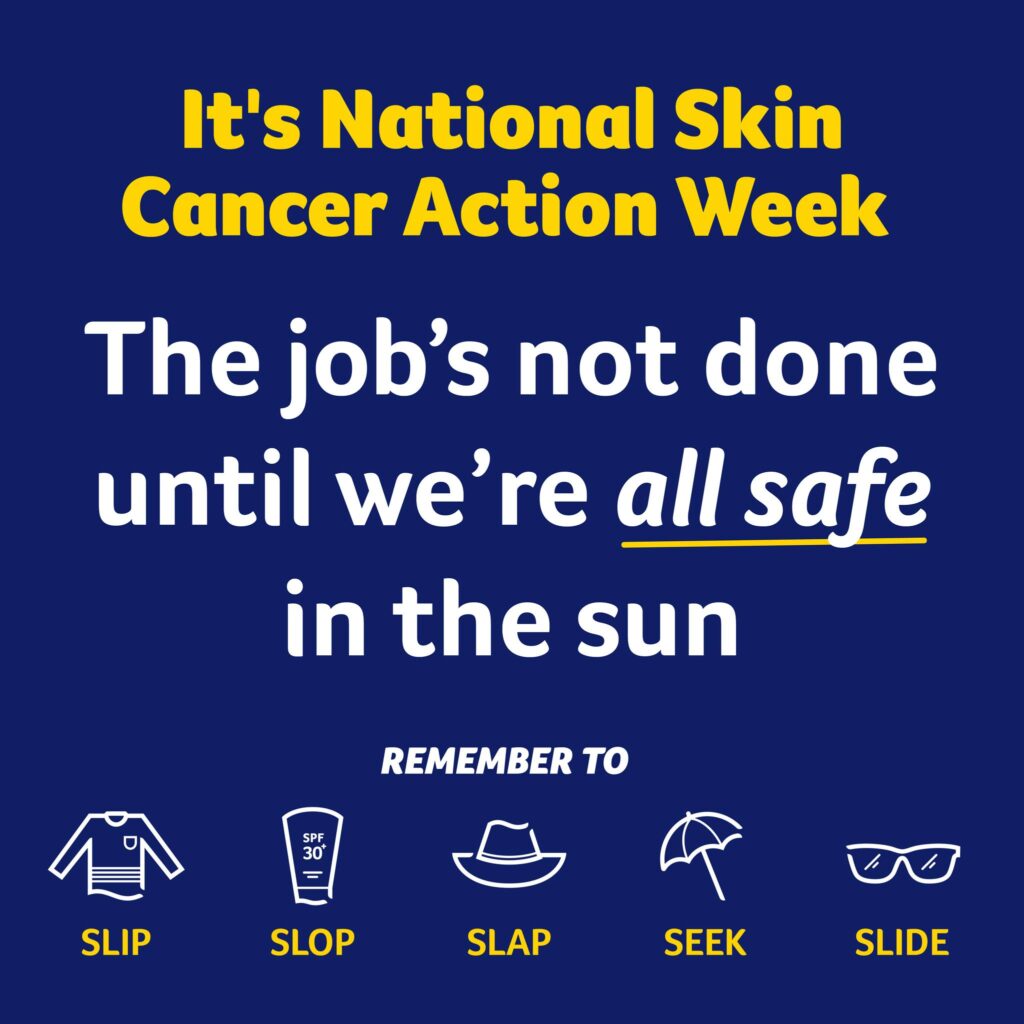
Two in three Australians will be diagnosed with skin cancer before the age of 70, making it one of the nation’s most common cancer[s.
Sadly, skin cancer claims the lives of almost 2,000 people in Australia each year.
This week (21-27 November) is National Skin Cancer Action Week. Every year, the Cancer Council Australia and the Australasian College of Dermatologists come together to remind all Australians to use sun protection and emphasise the importance of early skin cancer detection.
A common misconception about skin cancer is that only people who lie in the sun for hours at a time will be diagnosed with skin cancer.
Australia’s high levels of cancer-causing ultraviolet (UV) light mean being in
the sun during daily activities including working outdoors, gardening, walking to the busand exercising can increase your risk of developing skin cancer.
Furthermore, damage from sun exposure adds up over time, increasing risk of cancer as you age.
More than 95% of skin cancers are directly related to exposure to UV light radiation, which can be high even on cool and overcast days.
As we move into summer, it is important to remember the basic steps to protect your skin.
Incorporating sunscreen application into your daily morning routine is a great habit to have so you can be protected every day.
The well-known phrase ‘slip, slop, slap, seek, slide’ is a perfect and easy reminder for how you can keep yourself protected when out in the sun.
Slip on some protective clothing.
Slop on sunscreen (SPF 30 or above and reapply every 2 hours).
Slap on a hat.
Seek shade.
Slide on a pair of sunglasses to protect your eyes.
Following these 5 simple steps to protect your skin from the sun is the best defence from skin cancer.
95% of skin cancers are treatable when detected early. Regular skin checks increase the chance of early detection and invention, and could save your life.
Checking regularly will help you to notice any spots that may have changed in size, shape, colour or texture. Keep an eye out for moles that are asymmetric, have an uneven border, have changed in colour, grown, and/or have any crusty or non-healing sores.
Don’t forget to check your entire body, as skin cancers can often occur on parts of your body that are not often exposed to the sun, such as the soles of feet, between fingers and toes and under nails.
Ask a friend or family member to have a look at your back and scalp to make sure you are checking everywhere.
Importantly, you should visit your GP or dermatologist for a professional skin check once a year. However, if you have any concerns about your skin, you should always speak to your GP as soon as you can.
To learn more about protecting yourself from skin cancers visit: https://www.cancer.org.au/.
